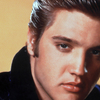Despite now being more than 100 years old, there are some curious parallels between Japanese author Natsume Sōseki’s novel KoKoro and KoKoro, the new album from Swedish singer Sarah Assbring, better known as El Perro Del Mar. They both focus on changing times and values, personal identity, a pervasive feeling of isolation and an increased focus on the individual over the group. Assbring didn’t know much about the novel until after her latest LP was recorded, but realises that it’s a very strange occurrence. “It’s a coincidence, but sometimes these things happen and maybe they’re not really a coincidence!” she laughs. Assbring actually chose the title of her new album because of its sound, but also its meaning; KoKoro is Japanese for “the heart of things” or “feeling.” “I stumbled upon it and I felt like it was one of the most beautiful words I’d heard.”
It’s been five years since Assbring released her last LP, Pale Fire, an album inspired by the 90s house and dance music she used to love. Its centrepiece, ‘Walk On By’, even contained a pretty clear reference to Massive Attack’s ‘Unfinished Sympathy’. Pale Fire was a slightly more experimental, electronic take on the 60s-flavoured pop she’d been peddling since her debut in 2005; different enough to prick up the ears, familiar enough to be comforting. Since then things have changed quite dramatically for Assbring. “I had a son just in the middle of the release of my last album,” she explains. “I was on maternity leave and that was, for the first time, a period of not being around music so much, not thinking about words or ideas. That was a really new experience for me.”
Despite being away from music for a while, the experience of becoming a mother was actually quite liberating for Assbring, giving her a new perspective on the world. “The coolest thing about having a child is that you look upon the world and what you’re exposed to with totally new eyes. What I felt was my baby’s eyes, this alien person coming into the world and seeing everything that’s happening around them, things that I just accept as a natural thing.” Her new viewpoint “changed my ideas of how I see myself and how I see the world around me. It made me think a lot about political things, and made me realise that I’m not going to be able to write an album that’s introspective in the way I’ve been writing before. It felt like a challenge for me.”
Wiping the slate clean, Assbring decided to try and abandon all her previous Western musical references. Surely that would be an impossible task? “Actually it was quite simple because I felt like, when I started writing music and thinking about it again, I realised that having a child meant that my old life was over. In a good way!” she explains. “I think I felt like I was more or less done with my old notion of pop, which consists of Western pop ideas. It felt more important and interesting to look elsewhere.” As a result, listening to KoKoro is like becoming an adventurous globetrotter from the comfort of your own home. It uses a variety of instruments from across the world, including the Japanese Shakuhachi flute and the Chinese stringed Guzheng, while also taking inspiration from Cambodian pop. Musicians such as Pakistan’s Abida Parveen, India’s Asha Bhosle, South Korea’s Kim Jung Mi and Ethopia’s Yeshimebet Dubale were all strong influences on Assbring. “I was drawn to certain music: Asian music, Japanese and Chinese pop music, Cambodian pop and rock. I definitely found myself digging deep into that kind of music,” she explains. Some of the groups and musicians she’d already encountered before, but Assbring’s desire to learn more about pop from across the world led her into digging deeper and deeper. “It was this completely new referential world to draw from.”
Assbring’s appetite for new music led her to ask some serious questions about how we consume music in the West. “Where is the Western world today in reference to the rest of the world? Why don’t we hear more music that comes from the rest of the world around us?” she asks. “I was interested in why it feels like we’re more narrow-minded and closed to hearing pop music from the rest of the world nowadays than we perhaps should be.” She’s got a good point. Our increased access to the Internet means we can theoretically discover more music by searching on stores and streaming platforms such as iTunes, SoundCloud and Spotify. However, unless you’re looking through the “World” sections, the recommendations we get from these services are often very much rooted within the Western pop mould. Arguably, the closest the Western mainstream came to an Asian pop star in recent years was Psy. But while his all-pervading hit ‘Gangnam Style’ focused lyrically on a very South Korean phenomenon, the music was very much rooted in Western club culture. Even Babymetal coat their J-Pop conventions with a good few layers of thrash guitars. This didn’t escape Assbring’s notice when she was searching for music. “I was really intrigued by that when I started to find music myself,” she says. “It just made me even more puzzled about why it is we’re not hearing music from all over the world nowadays.” As she points out, “it shouldn’t matter where the music comes from.”
There was a risk that having these instruments played by an all-Swedish cast of musicians could have seen Assbring being accused of cultural appropriation. The possibility had crossed her mind. “I’m aware of the dangers of cultural appropriation, but I also hope that I’m open enough to the point that I see music as something that should work globally,” she says. Assbring’s views on the issue are, perhaps somewhat curiously, similar to that of Diplo. The producer had to defend himself for working with the dancehall and reggae-inspired group Major Lazer on the hit ‘Lean On.’ In the wake of the allegations, he said: “what makes a great artist is someone who can change the direction of music.” Assbring is of a similar mind. “We’re more in the position today that we’re so afraid of the risk of being labelled that way that we stay out of the possibility,” she says. She worries that the fear of being labelled as culturally appropriative inhibits creativity and simply puts up more musical barriers. “I think that is perhaps more dangerous than anything. That sets the anxiety and that in itself makes the distances between people and places even wider.” But Assbring is determined to bring down those borders. “I’m willing to take the risk.”
As well as containing a strikingly international musical palette, KoKoro is also a surprisingly political record. In the past, El Perro Del Mar albums have centred on personal issues, particularly on the trials and tribulations of love. Before now, the closest Assbring came to being overtly political was a standalone track, ‘What Do You Expect’. It was released shortly after the London Riots and employed samples of lines such as: “The police are not listening to them / What do you expect?” In the end, only the song’s closing refrain of “Never grow tired of this pale, pale fire” made it onto the title track of her last record. So hearing her sing about deep-rooted social problems on KoKoro feels like a bold step into new territory. “I wanted to make simple pop songs with depth,” she explains. “If you weren’t to understand the statements, that’s okay, because you could just enjoy the pop song itself. But if you were to understand the idea, and go deeper into it, then maybe a whole new world would open up to you. That would be brilliant. I would be even happier!”
Assbring didn’t want to make a record that came across as overly moralistic or preachy, though. Likewise, she wanted to make sure that the sentiments underpinning the songs were presented in a simple, accessible way. “As soon as I understood that these were the subjects I wanted to write about, I asked myself ‘How do I do that?’” she says. “I had to find a poetic language that made sense to me and how I write but also wasn’t on the nose. I wanted it to be a poetic, Dadaistic kind of thing.” To do this, she turned once again to the concept of childhood and innocence. “I started out being surrounded by nursery rhymes, which goes back to how I’ve written before. I think I’m linked into a world where I think a lot about my lyrics as nursery rhymes as well.” The simple nature of nursery rhymes is peppered throughout the album. Lead single ‘Breadandbutter,’ for example, questions isolationism by repeating that “we all come from the same bread and butter” like a childlike mantra.
It’s Assbring’s views on the failings of capitalism that are the most politically striking aspect of KoKoro, though. “We are more or less so adapted to these things that we just think they’re a part of life. But they’re not, it’s just an economic system that needs to work the way that it does and that’s founded on the means of us not feeling happy or satisfied with our lives.” To accompany KoKoro, Assbring wrote a short manifest briefly outlining what to expect from the album. It also referenced “the heart of the small individual who on [a] daily finds herself invaded by the pressures of a society that’s based on consumerism, greed, and self-focus.”
Also included in the manifest was a photograph of a work from British artist Robert Montgomery’s Billboard series, which she describes as “classic poetry.” The particular billboard she chose sees Montgomery thinking about all the modern objects he doesn’t want. Contemplating how unhappy these objects could make him ultimately sets him free. It’s unsurprising that Montgomery’s work resonates with Assbring, as advertising is a particularly poisonous aspect of capitalism for her. On ‘Ding Sum’ she talks about how “Pics of girls and ads of boys / Hit you, hit you as you go,” gently critiquing the way in which we’re all unwittingly shaped into being avid consumerists. She adored how Montgomery used the medium to subvert these expectations. “The way advertising works is subconsciously and having poetry working and becoming loud in that kind of way, even though they’re heavy truths, means they come into your mind in a situation where they’re not expected to. It’s such a magnificent way of sending out poetry. I was so much in love with how his poetry worked.”
Assbring’s apathy towards a modern society built on images also lead her to the work of Polish sociologist Zygmunt Bauman. “He’s a really interesting philosopher. He talks about the post-postmodern society. I started really getting into him because he’s this really old, old man and very much a traditional kind of philosopher, but he has really interesting ideas when he speaks about the consumerist society and the consumerist world.” She was particularly interested in Bauman’s writing on the London Riots. In an article for Social Europe, he wrote that “these are not hunger or bread riots. These are riots of defective and disqualified consumers.” To slightly paraphrase Bauman, “non-shopping” is the stigma of an unfulfilled life, not just leading to an absence of pleasure but also an “absence of human dignity. Of life meaning.” These kinds of philosophical sentiments really resonated with Assbring. “He had a really interesting way of talking about how society isn’t taking care of its members anymore, and the effects we see, rather than just blaming the people,” she says. “It’s a complex issue and a complex situation, but I feel everything needs to be addressed to protect the citizens. He does that.”
The theme of improvement certainly runs strongly throughout KoKoro. Even on its opening track, ‘Endless Ways,’ Assbring continually repeats that there are “Endless ways to better myself.” But really, she’s critiquing a society that encourages self-improvement only on a very basic, surface level. “That’s what we’re taught to live for, to improve ourselves,” she says, “that we wake up every morning and have to better ourselves, but not necessarily as a person or as a human being. It’s just improving yourself physically, aesthetically, becoming more beautiful, to be liked. Not improving yourself in a way with any substance. I wanted to talk about that, the really shallow way that we think life is about.”
It might seem like Assbring is being pessimistic on KoKoro. After all, on ‘Ging Ging’ she sings that: “happiness whatever it means is not enough / Seems to me living like this is not enough.” But it’s not that Assbring believes it’s impossible to be content in contemporary society. “I definitely believe that happiness is possible. But we’re looking at the wrong places,” she explains. “A lot of people have a subconscious list in their mind where they think that life is about checking off all these things, and then you’ll achieve happiness. Then when you check all the things off the list, you find that you’re still not happy.” She suggests that we should stop listening to others and instead take some time to understand what we really need, from within. “You have to be aware of your inner happiness. I don’t want to sound really vibe-y or anything!” she laughs. “It just requires focus to ask yourself, look inwards to yourself and know exactly what it is that you need. To ask yourself: ‘Do I need this?’ ‘Am I happy right now?’ And also not to surround yourself with stuff that doesn’t make that dialogue possible.” In a nutshell, Assbring’s mantra for a happy life is actually quite simple. “The less stuff, and the less ownership and greediness, the bigger the chance of happiness.”
KoKoro is out now via Control Group. For more information and upcoming tour dates, please visit her official website.






















